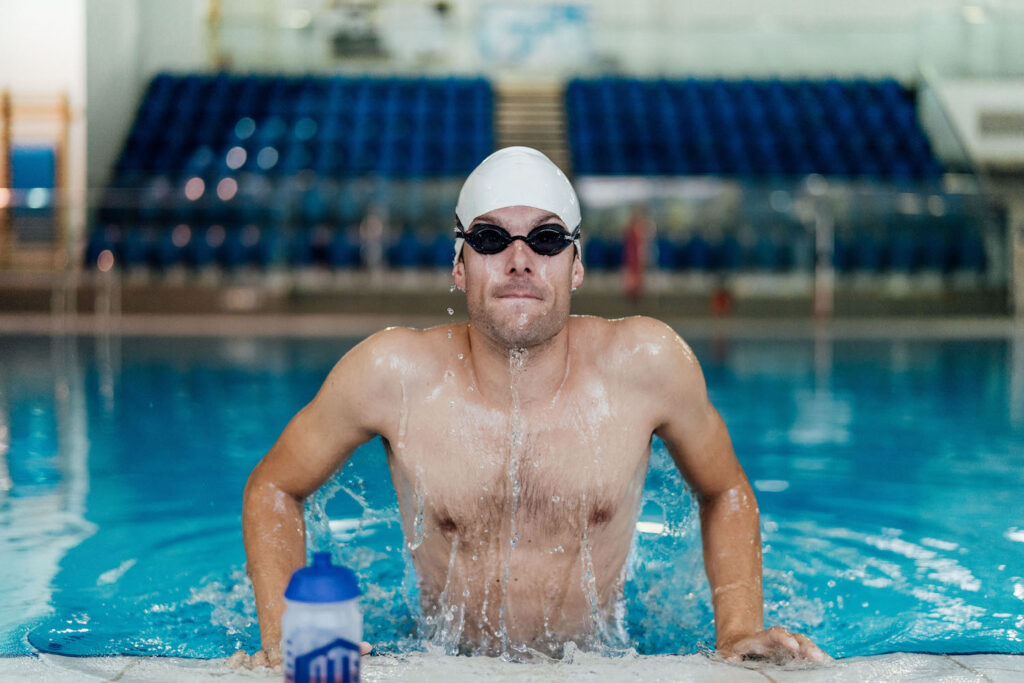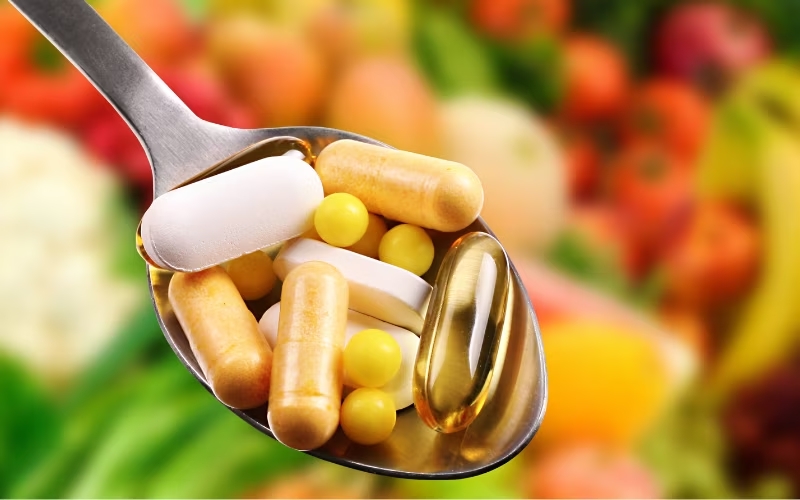In the competitive world of swimming, nutrition plays a pivotal role in an athlete’s performance and recovery. This article, ‘Setting the Pace: Crafting a Nutrition Plan for Competitive Swimmers,’ delves into the essential aspects of dietary planning that can help swimmers maintain peak physical condition and enhance their competitive edge. From pre-race meals to recovery foods, and everyday dietary strategies to performance supplements, we explore a comprehensive range of topics tailored to the unique needs of swimmers.
Key Takeaways
- Understand the importance of carb loading and its specific timing before swim meets to optimize performance.
- Recognize the role of proteins and electrolytes in muscle recovery and rehydration post-competition.
- Learn how to balance macronutrients and micronutrients in daily meals for sustained energy and health.
- Explore the benefits and considerations of supplements and special diets, including vegan and gluten-free options, for competitive swimmers.
- Gain practical tips for maintaining a nutritious diet while traveling, ensuring peak performance during competitions away from home.
Fueling Up: What to Eat Before a Swim Meet
Carb Loading: Is It Right for Swimmers?
Carb loading can be a strategic approach especially before long races like freestyle for beginners. Some good sources of carbs are rice, cereal, pasta, potatoes, beans, peas, and lentils. These foods help in maintaining energy levels during prolonged periods of physical activity such as freestyle swimming steps.
Timing Your Meals: When to Eat Pre-Race
It’s crucial to time your meals to ensure that you have enough energy to last through the race without feeling bloated or sluggish. A general rule is to have a substantial meal about 3 to 4 hours before the event, and a light snack about 30 to 60 minutes prior. This strategy supports various swimming techniques, including backstroke for beginners and freestyle kick drills.
Hydration: Water vs. Sports Drinks
Hydration plays a pivotal role in a swimmer’s performance. Water is essential for most training scenarios, but sports drinks can be beneficial during longer sessions like those involving michael phelps freestyle or drills for breathing in freestyle. These drinks provide not only hydration but also important electrolytes and a quick energy boost.

Water vs. Sports Drinks
Recovery Foods: What to Eat After Competing
Protein Power: Rebuilding Muscle
After a grueling swim meet, your muscles are screaming for some TLC. Protein is crucial for muscle repair and growth. Opt for lean sources like chicken, fish, or plant-based alternatives like tofu. A smoothie with whey or pea protein can also do the trick, especially when you’re on the go.
Electrolytes: Replenishing What’s Lost
You’ve sweated out a lot of essential minerals during that intense swim. Replenish electrolytes like sodium, potassium, and magnesium with a balanced sports drink or coconut water. For a more natural approach, munch on a banana or sip on some broth.
Snack Ideas for Quick Recovery
Quick and easy snacks can be a lifesaver when you’re between events or heading home from the pool. Here are a few go-to options:
- Greek yogurt with honey and almonds
- A peanut butter and banana sandwich
- A handful of trail mix
Remember, the goal is to refuel efficiently so you can recover quickly and get back to training or competing with full energy.
Daily Diet: Structuring Your Everyday Meals
Balancing Macronutrients
Balancing your macronutrients is crucial for maintaining energy levels and optimizing performance. A swimmer’s diet should consist of a mix of carbohydrates, proteins, and fats. Carbohydrates are the main energy source, especially important during intense training sessions. Proteins are essential for muscle repair and growth, while fats provide a concentrated energy source and aid in nutrient absorption.
- Carbohydrates: 50-60%
- Proteins: 15-20%
- Fats: 20-30%
Importance of Micronutrients in Swimming
Micronutrients, though needed in smaller amounts, play significant roles in a swimmer’s health and performance. Iron, zinc, and magnesium are particularly important for energy production and muscle function. Vitamin C and E are crucial antioxidants that help reduce oxidative stress caused by intense workouts.
Ensure you’re getting a broad spectrum of micronutrients to support all bodily functions.
Meal Planning Tips for Busy Athletes
Meal planning can be a game-changer, especially for swimmers with hectic schedules. Preparing meals in advance ensures that you’re fueling your body with the right nutrients at the right times. Focus on lean protein, complex carbs, and vegetables post-morning or pre-afternoon training. Utilize weekends or off-days to prep meals for the week, making sure to vary your diet to cover all nutritional bases.
Supplements: Boosting Performance Legally and Safely
Essential Supplements for Swimmers
Swimmers often need a boost in their nutrition due to the intense demands of training and competition. Essential supplements like omega-3 fatty acids, iron, and vitamin D can significantly enhance performance and recovery. Here’s a quick list of must-haves:
- Omega-3 Fatty Acids: Reduce inflammation and improve heart health.
- Iron: Essential for oxygen transport in the blood.
- Vitamin D: Crucial for bone health and immune function.

Supplement for swimmer
Navigating the World of Performance Enhancers
The world of performance enhancers can be a minefield. It’s crucial to stay informed and choose supplements that are safe and legal. Always check for substances banned by sports authorities and consult with a healthcare provider before starting any new supplement regimen.
Natural vs. Synthetic Supplements
When it comes to supplements, you have two main choices: natural or synthetic. Natural supplements, like fish oil or beetroot juice, are generally safer and have fewer side effects. Synthetic supplements, on the other hand, might offer more concentrated benefits but come with a higher risk of adverse effects. Weighing the pros and cons of each is key to making the best choice for your health and performance.
Read more: Essential Swim Nutrition Tips for Peak Performance
Special Diets: Exploring Vegan and Gluten-Free Options
Can You Swim Fast on a Plant-Based Diet?
Absolutely! Plant-based diets are rich in carbohydrates, which are essential for energy. Many top athletes thrive on vegan diets, proving that you can maintain high energy and performance levels. Consider incorporating a variety of beans, grains, and vegetables to ensure a balanced intake of nutrients.
Managing a Gluten-Free Diet as a Competitive Swimmer
Navigating a gluten-free diet while maintaining the energy levels needed for swimming can be challenging but manageable. Focus on naturally gluten-free foods like rice, quinoa, and fruits. For protein, Now Sports Nutrition Pea Protein is a great gluten-free option that supports muscle recovery.
Balancing a Special Diet with High Energy Needs
To meet the high energy demands of competitive swimming, it’s crucial to plan your meals carefully. Include calorie-dense foods like nuts, seeds, and avocados in your diet. Also, ensure you’re getting enough calories from healthy fats and proteins to support your training regimen.
Eating on the Go: Nutrition Tips for Traveling Swimmers
Traveling for competitions can throw a wrench in your usual nutrition routine. Here’s how to stay on top of your game, no matter where you are.
Packing the Perfect Travel Meal Kit
Always be prepared with a travel meal kit. Include non-perishable items like nuts, seeds, whole grain crackers, and protein bars. This ensures you have healthy options on hand, preventing the temptation to indulge in less nutritious airport or roadside food.
Finding Healthy Options on the Road
It can be tricky to find good food when you’re away from home. Look for restaurants that offer grilled, baked, or steamed options rather than fried. Opt for dishes rich in proteins and vegetables to maintain your energy levels and muscle repair.
Staying Hydrated While Traveling
Hydration is crucial, especially when flying, as it’s easy to become dehydrated in the air. Carry a reusable water bottle and fill it up after security. Aim to drink at least 8 ounces of water every hour you’re in the air to stay properly hydrated.
Traveling swimmers need to maintain their nutrition to perform at their best. Visit our ‘Nutrition’ section under ‘Knowledge’ on our website for comprehensive guides and tips on eating healthy while on the go. Whether you’re looking for meal planning advice or the best foods to keep your energy up, we’ve got you covered. Dive into our resources today and keep your swimming performance at its peak!
Wrapping It Up
So there you have it! A comprehensive guide to fueling your body for the rigors of competitive swimming. Remember, the right nutrition plan can make a huge difference in your performance. It’s all about finding what works for you and sticking to it. Experiment, adjust, and most importantly, listen to your body. Here’s to making waves in the pool and achieving your personal best!
Read more: Nutrition for Swimmers Guide: Maximizing Performance
AUTHOR
Sang Nguyen
Sang Nguyen is a former national swimmer for Vietnam who has transitioned into coaching. With a passion for fostering a healthy swimming community and connecting like-minded individuals,......Read More
BLOG
Maybe You Are Interested
Good Swim Meet Snacks: What to Eat for Optimal Performance
Good nutrition is crucial for swimmers to maintain energy, recover quickly, and perform at their...
Read More...Optimizing Your Performance: The Best Diet for Swimming Training
Optimizing your performance in swimming is not just about rigorous training; it’s equally crucial to...
Read More...Achieve Peak Performance with This Diet Chart for Swimmers
Whether you’re a novice or an expert swimmer, understanding the right diet is crucial for...
Read More...Eating Like a Champion: Exploring the Diet of Michael Phelps
Michael Phelps, renowned for his Olympic triumphs, has a diet as extraordinary as his swimming...
Read More...Muscle Gain for Swimmers: Tailoring Your Diet for Strength
Swimming is a demanding sport that requires a tailored approach to nutrition to support muscle...
Read More...A Comprehensive Diet Plan To Gain Weight For Swimmers
Swimming is a demanding sport that requires meticulous attention to nutritional needs to optimize performance,...
Read More...